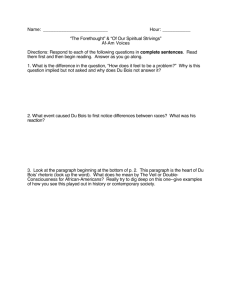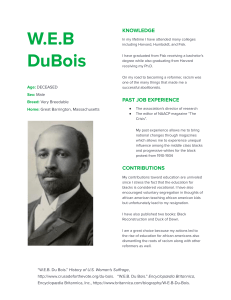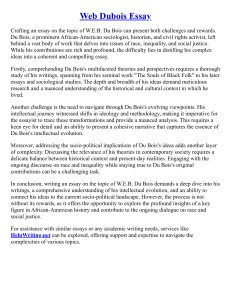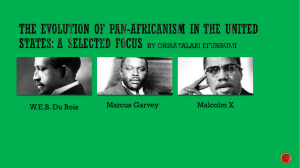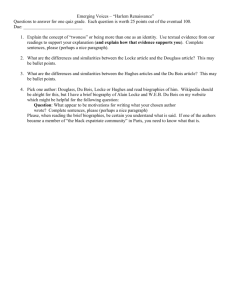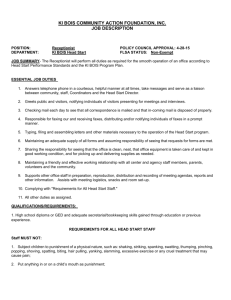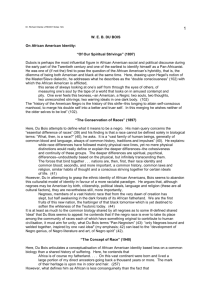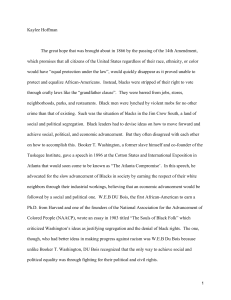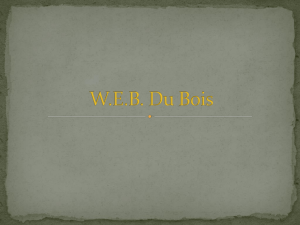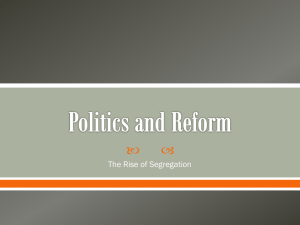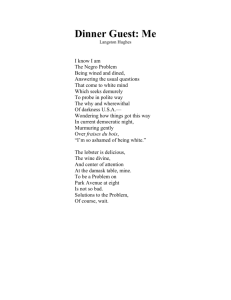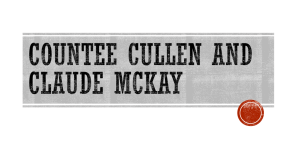“Of Our Spiritual Strivings” W.E.B DuBois
advertisement
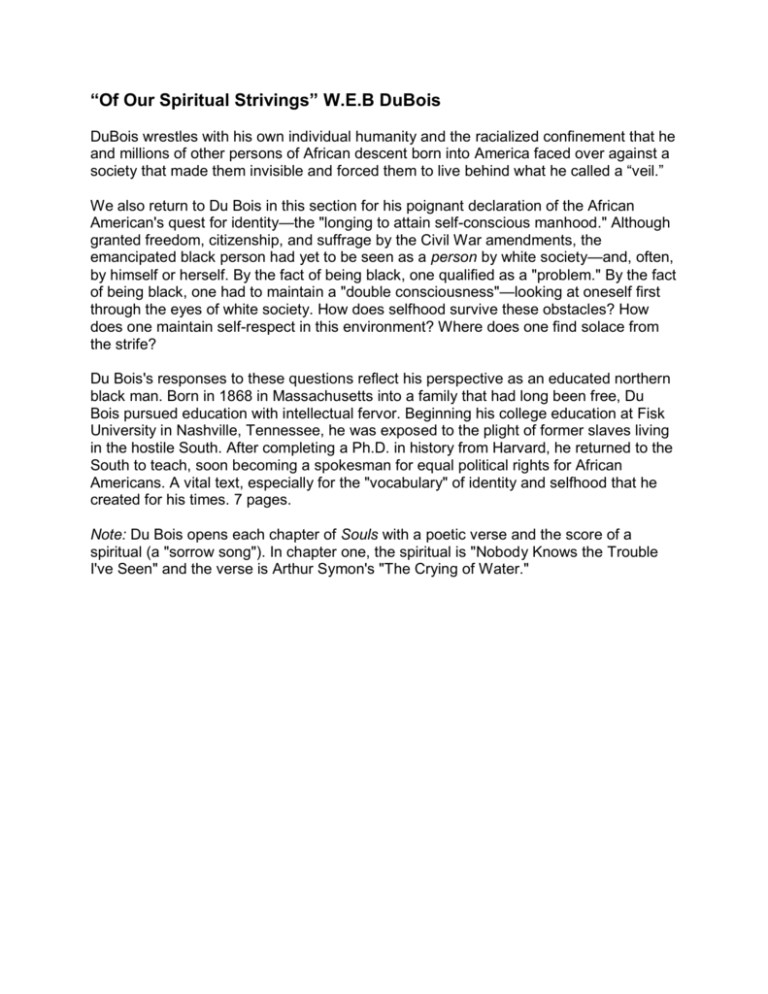
“Of Our Spiritual Strivings” W.E.B DuBois DuBois wrestles with his own individual humanity and the racialized confinement that he and millions of other persons of African descent born into America faced over against a society that made them invisible and forced them to live behind what he called a “veil.” We also return to Du Bois in this section for his poignant declaration of the African American's quest for identity—the "longing to attain self-conscious manhood." Although granted freedom, citizenship, and suffrage by the Civil War amendments, the emancipated black person had yet to be seen as a person by white society—and, often, by himself or herself. By the fact of being black, one qualified as a "problem." By the fact of being black, one had to maintain a "double consciousness"—looking at oneself first through the eyes of white society. How does selfhood survive these obstacles? How does one maintain self-respect in this environment? Where does one find solace from the strife? Du Bois's responses to these questions reflect his perspective as an educated northern black man. Born in 1868 in Massachusetts into a family that had long been free, Du Bois pursued education with intellectual fervor. Beginning his college education at Fisk University in Nashville, Tennessee, he was exposed to the plight of former slaves living in the hostile South. After completing a Ph.D. in history from Harvard, he returned to the South to teach, soon becoming a spokesman for equal political rights for African Americans. A vital text, especially for the "vocabulary" of identity and selfhood that he created for his times. 7 pages. Note: Du Bois opens each chapter of Souls with a poetic verse and the score of a spiritual (a "sorrow song"). In chapter one, the spiritual is "Nobody Knows the Trouble I've Seen" and the verse is Arthur Symon's "The Crying of Water."
